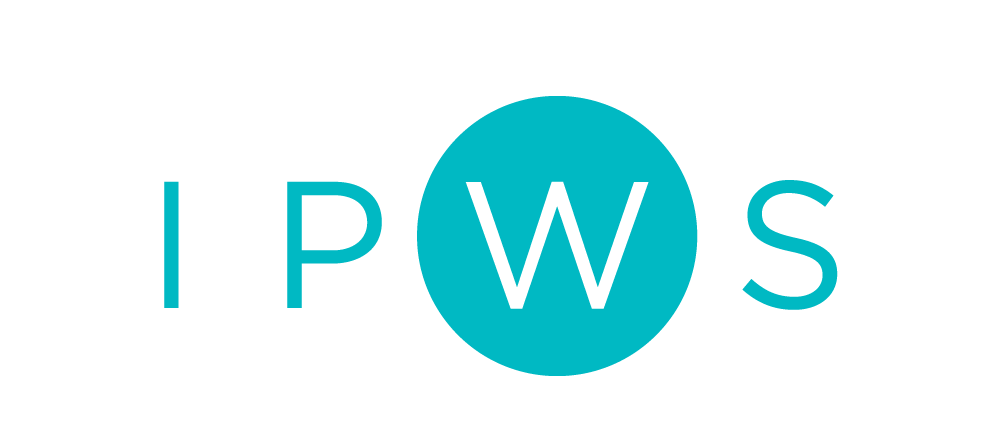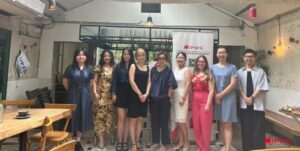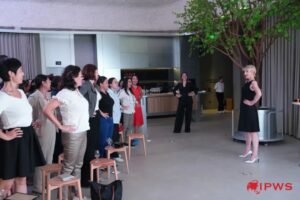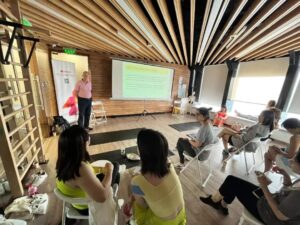
A Shanghai icon, a female restaurateur, a knowledgeable literati, an assertive businesswoman… these are just a few of the labels Michelle Garnaut has been given throughout her 30+ years in Shanghai and Hong Kong.
Amongst her many endeavors, Michelle is the founder of M Group restaurants such as M on the Bund and Glam, both of which showcased authors, photographers and filmmakers from around the world who would speak at her yearly Shanghai Literary Festival. There is even a documentary currently being created about M on the Bund and its (and her) legacy. To say that she is ‘a Shanghai icon’ could even be an understatement, yet upon meeting her and saying just that, she responds with, “that’s only because I’ve been here for so long.”

Admittedly, we were both a bit awestruck prior to meeting Michelle. Women entrepreneurs ourselves, we wanted to learn as much as we could from her experiences. But when she began our meeting by first asking us questions, we had no idea where the conversation would go… yet it was one of the most candid we have had thus far, with tangible takeaways for any aspiring female business woman…
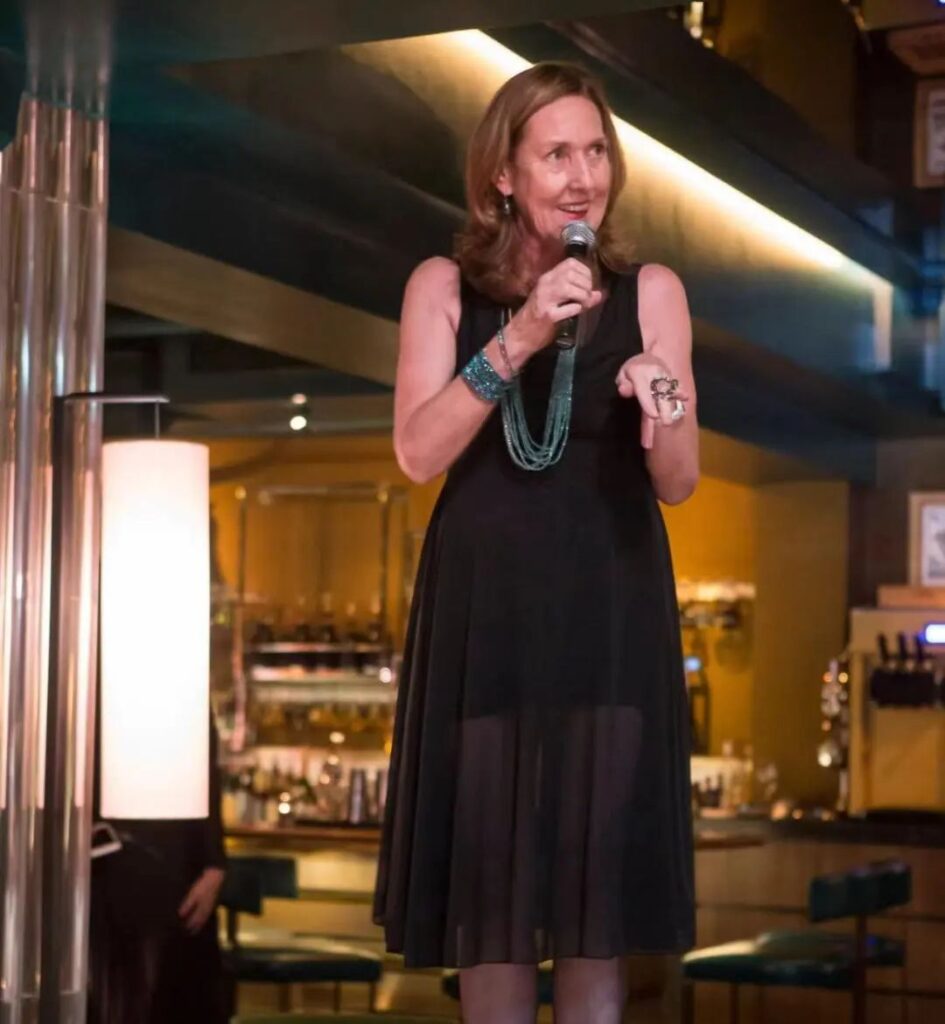
“I remember a woman saying to me once: ‘You are really bossy’”, begins the no-nonsense, yet incredibly personable Michelle. “And I said to her ‘[If I wasn’t bossy], none of you would be here.’ Which was true… It’s also true, that I am bossy. I’m the oldest of nine children, of course I am. I don’t take that as a personal thing.”
Growing up as the eldest of nine, with a father who passed away when she was 16, forced Michelle into taking the helm on the ship of responsibility. It also helped her adapt in the business world: taking charge, managing multiple personalities and also learning ‘to care less’. She reflects on a story when a friend told her that someone, whom she didn’t know, didn’t like her.
“Why would I give a s%*& about someone I don’t know and who doesn’t know me?,” she laughs, cutting right to it. “That opinion only benefits her; it elevates her. And there’s where I think you can’t pay attention to other people’s opinions. If you listen too much, it can be hurtful.”
Of course, she adds, had it been her sister telling her off, she would have taken a pause to reflect because ‘your good friends understand you and tell you the truth when you need to hear it’.
“It’s important to know who you are and be honest with yourself. If there’s something wrong you have to acknowledge it. Once you can do that, you can deal with it and move on.”
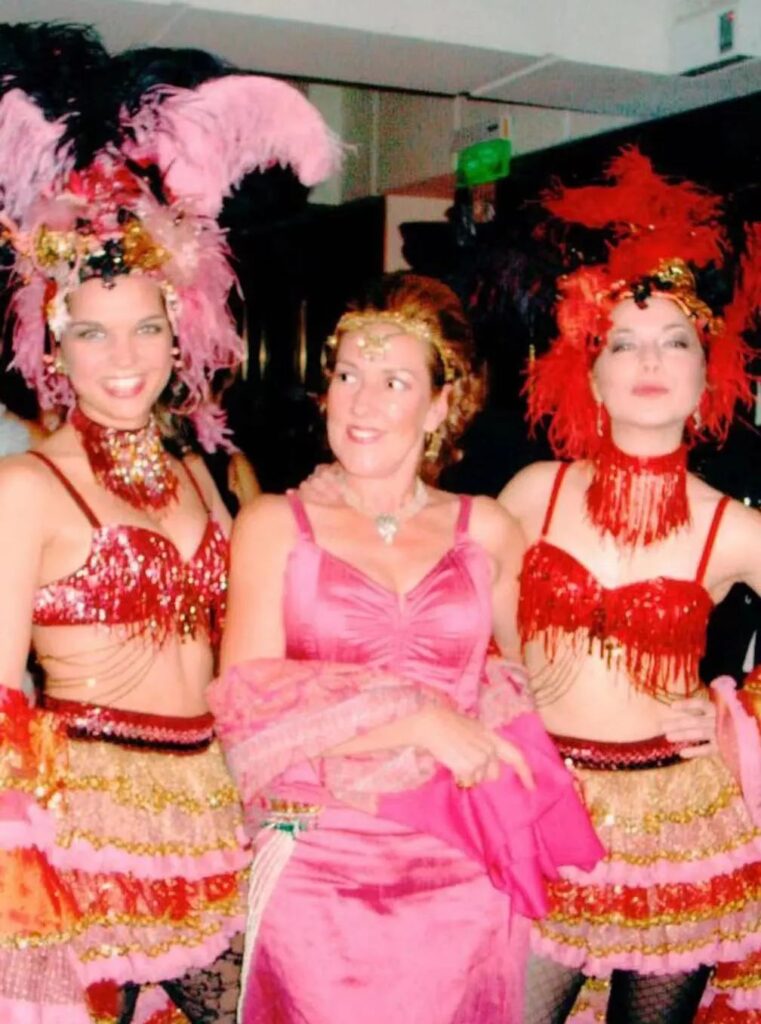
While being ‘bossy’ may have been part of her personality or part of her leadership style (or both), that doesn’t mean she was a cutthroat leader. She wouldn’t have started a regular mentorship program for women, or had multiple members of staff work for her for over 20 years at M on the Bund, had that been the case.
“A company isn’t anything if it isn’t the people in it,” she includes. “If you don’t look after them they don’t stay.”
But, she adds, for a woman in business, especially in China there is this idea that you have to be ruthless and brutal to be successful.
“I don’t think that’s true. I don’t think you have to be ruthless or dishonest. There’s space for everyone’s ideas to flourish if you’re committed enough, have well-developed ideas and have done your homework. When things don’t work, it’s often due to a person’s expectations – things like privilege or not understanding how much work must be truly done and giving up when things get hard.”
An honest reminder to anyone pursuing an entrepreneurial path – if it were easy, everyone would do it.
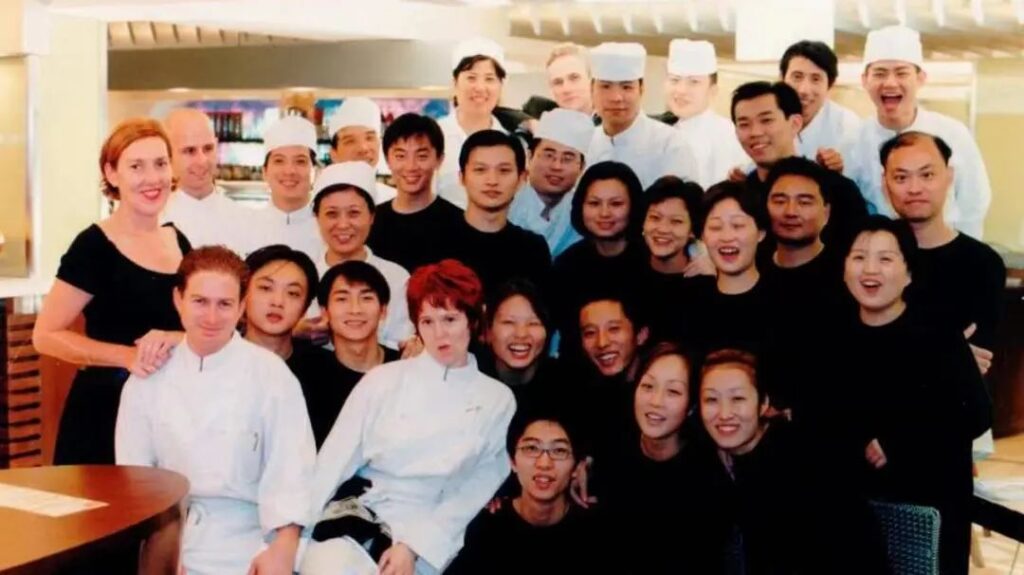
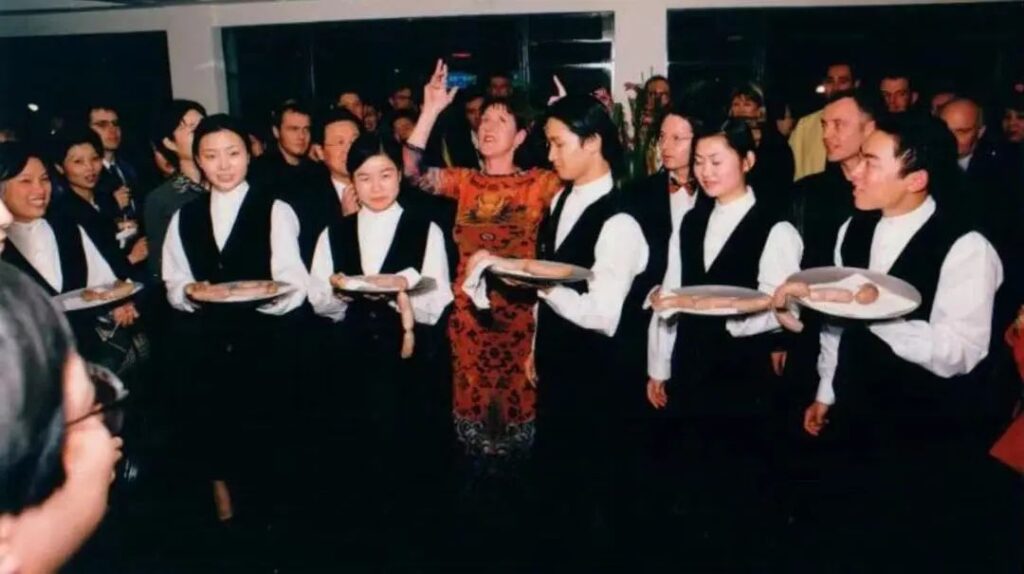
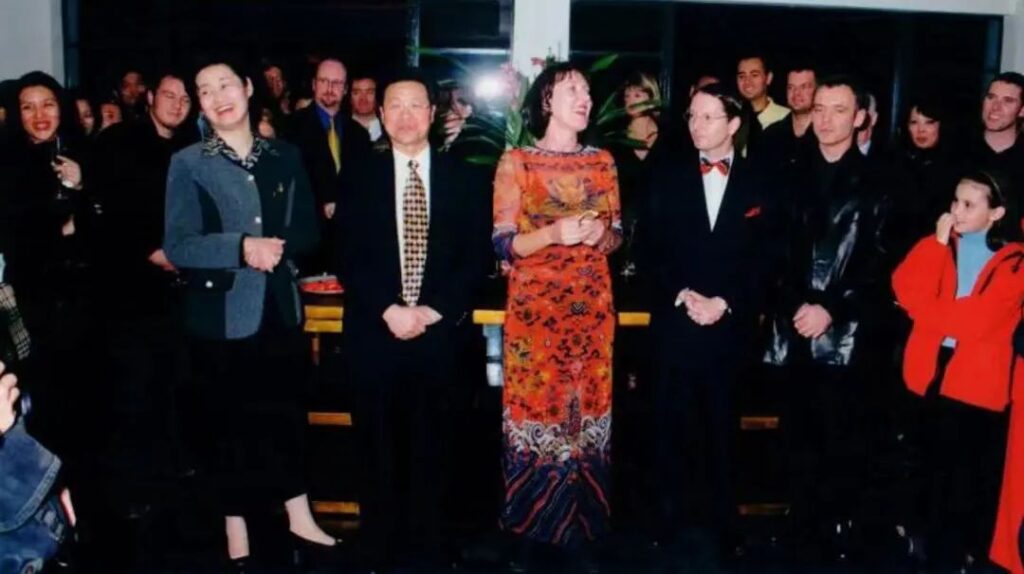
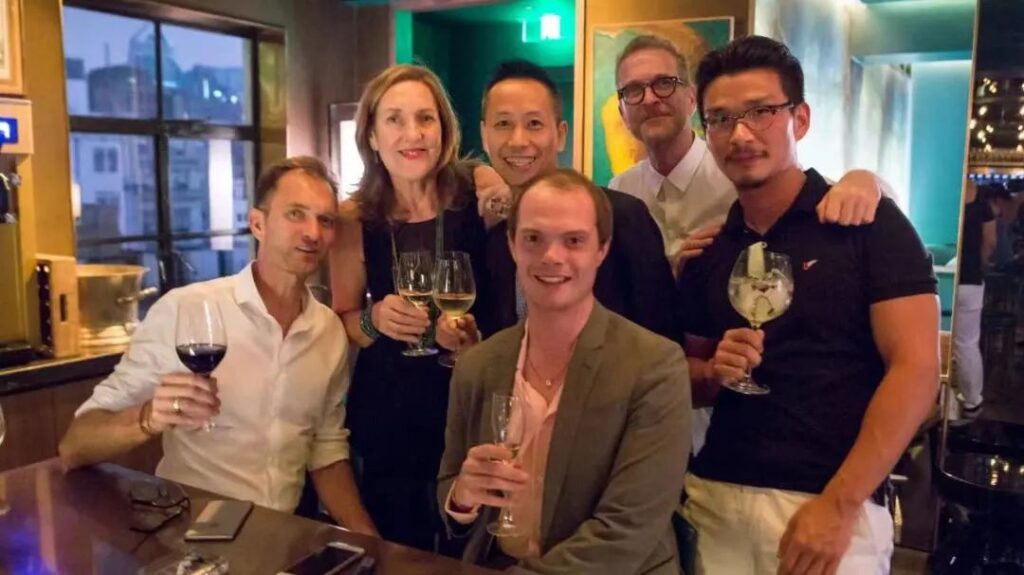
“I think there is a general misconception about women in business. [People think] they are either lucky or something shady is going on… it can’t be accredited to them just being hard working.” She adds, “even women misunderstand and devalue other women.”
As the conversation unfolds, we ask Michelle what is one thing that she has always wanted to do. She answers quite honestly, there is nothing that really stands out, but she is trying to figure out what she wants to do next… it’s not to start a new business or a non-profit – she has done both several times already! – but something that has a bigger influence on the world.
“That’s pretty difficult right? But if I can figure it out, it would be to put more women in charge; more women in power.”
Where to start, might be the bigger question. In some ways, opening a restaurant sounds easier…
“I think nothing short of a revolution…,” she says. “I think for the power structures to change, they need to be broken … I think when women have their own economic power, then they can control their own destiny. I remember having arguments with people who maintained, “I choose to be first a wife and a mother and then a business person…”. There is nothing wrong with choosing your priorities or their order of importance, but what is important is to have your own bank account.”
She adds that, women need to find courage to have those conversations – specifically with their partners, both personal and professional. It’s not about not trusting one another, but rather about having independence and creating your own path forward.
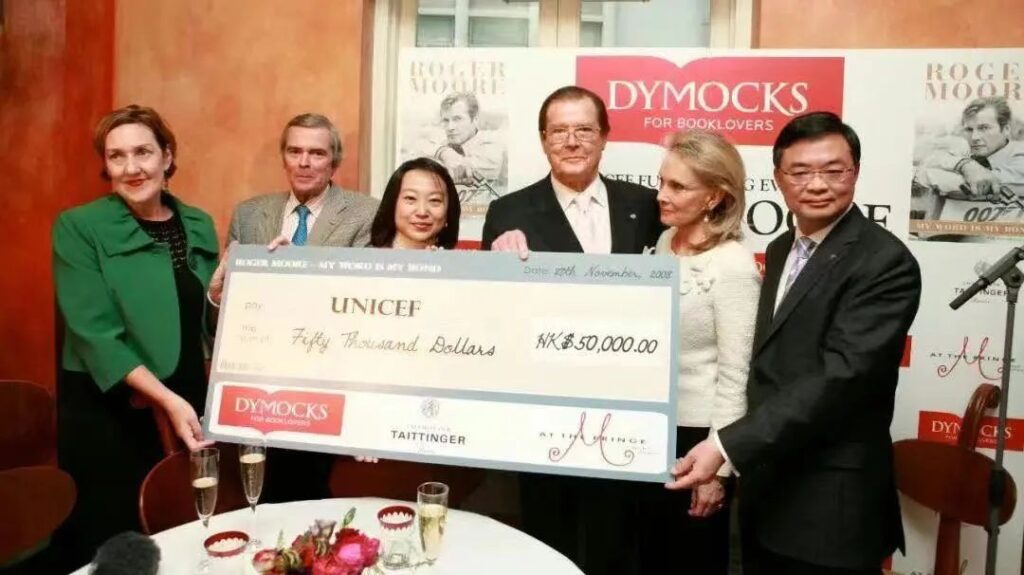


As we begin to understand Michelle’s unwritten rules for women in business, they begin to manifest as:
1. Care less about what other people say.
2. Find financial independence.
And third?
3. There is no stupid question.
When Michelle was starting her first restaurant in Hong Kong in the 1980s, there was a chef visiting whom was well recognized and as Michelle puts it, ‘a bit scary’. At the time, there weren’t a lot of women in the industry; when it came down to decision making and management, Michelle was in many ways, creating her own playbook. As happens in any business, Michelle began to face the challenges of staff turnover. Unsure as to what next steps should be, she stepped out of her comfort zone and approached the chef to ask her advice: would the most sensible next step be to step into the kitchen and takeover?
“No,” said the chef. “You can’t run the outside of the restaurant and the inside as well. My one piece of advice to you is never make your restaurant about the chef.”
“It was the best piece of advice I ever received,” said Michelle, adding that, you should never make your business only about someone else – their ego could steal the show, or when they eventually leave, what then happens to the restaurant?
In that situation, asking the question helped her. But, a few years prior to opening M on the Fringe (Hong Kong) not asking the question, or being too sure of the answer rather, didn’t do her any favors.
“I think not having the courage to ask the question can get you sidelined. I remember going to lunch with an investor. He asked me what my profit percentage might be. And I had no idea. I thought maybe 30-40%. Of course he knew instantly I had no idea what I was talking about.”
After that, she says she went and checked Yum! Brands and realized they had a profit percentage of something between 2-4%. Laughing she says that you learn by doing, making mistakes and failing.
“That was my lesson; I realized that I said something stupid and I couldn’t take it back. A better answer would have been: I have no idea. If we’re successful it will make a profit, if we’re not successful it won’t make a profit.”
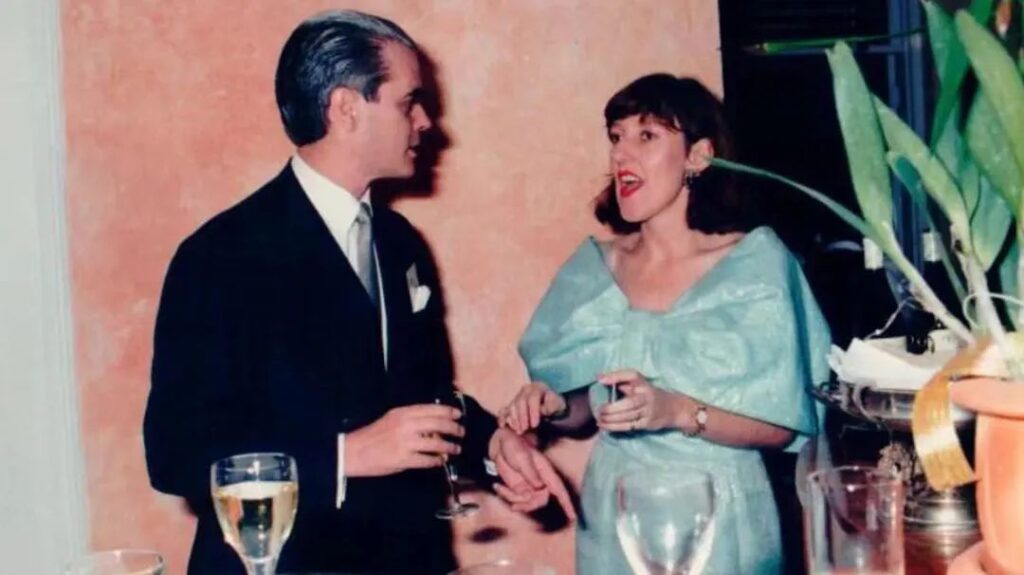
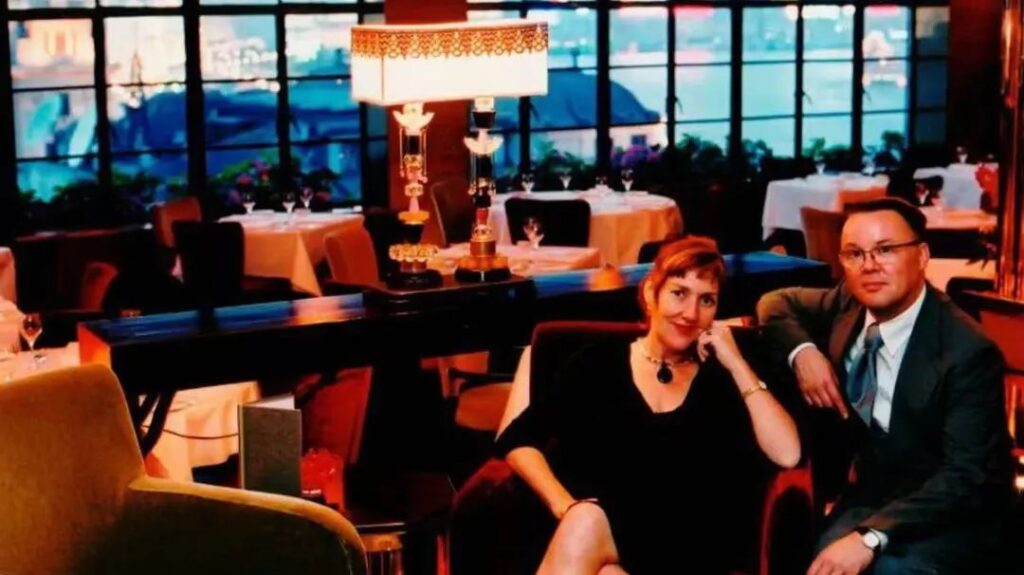
Her final piece of advice she shares is about mentorship. As the founder of Mentor Walks, a group that allows women mentees to connect with mentors, she says that mentoring was not ‘really a thing’ when she was growing up, and having people in her life, such as the chef that gave her the advice all those years ago, truly made life changing differences for her.
“I think the idea of mentoring didn’t really exist until the late 90s or early 2000’s, and I think from there it’s also evolved.. Maybe you even need mentoring for different areas.”
She adds that as someone managing or running a business, you also don’t mentor just one person, and it’s also up to the responsibility of those looking for mentorship to come to you. She said she’s had mentees that didn’t show up, or had some that got upset with her for not writing their business plan for them. In other words, be a mentor, but don’t get taken advantage of by a mentee. And when the advice runs dry, it might be time for the mentee to pay for a consultant or someone in their specific line of work that can really deep dive into their needs.
“You learn because you listen and because you care. I think you have different mentoring needs at different times in your life. With mentor walks you can be honest, you can move along, and you don’t have to read their business plan or write it for them. To get the expertise you need to pay for it. And trust people who know what they’re talking about. You have to figure it out and where it goes wrong you need to learn. And when it goes really wrong you really need to learn how to do it. Someone else can’t do that for you.”

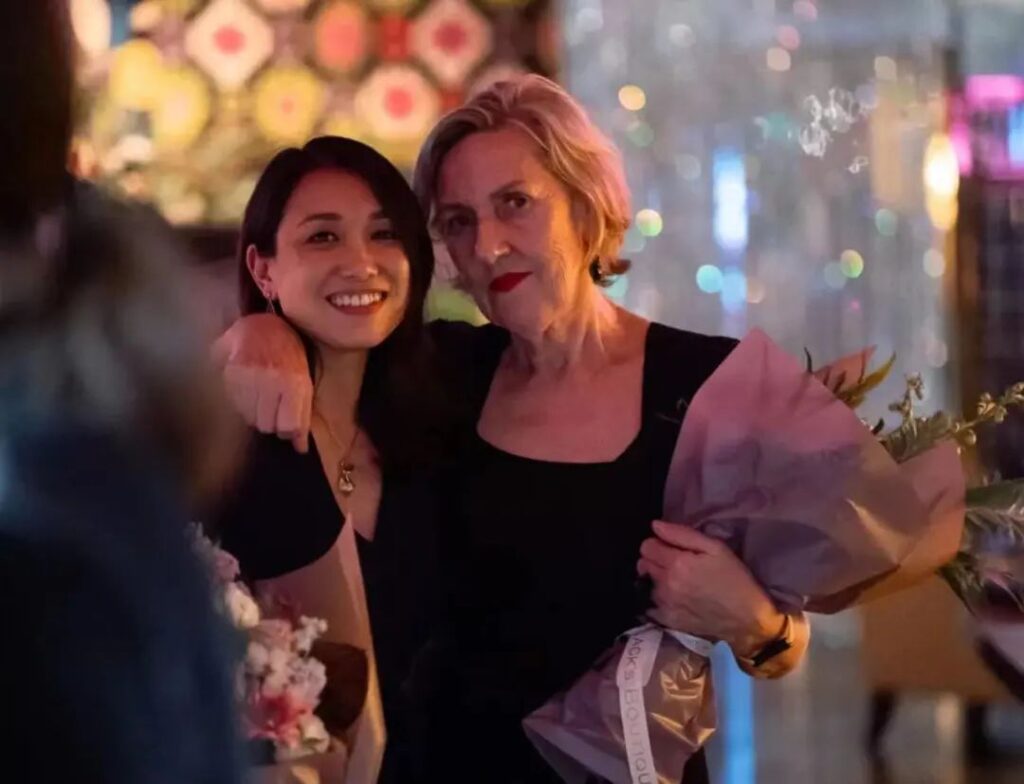
It hasn’t been all success for Michelle – there have been failures too. But failures can pave the way for new opportunities, and new possibilities. And that’s something to remember when work and life gets tough.
“You often don’t appreciate success… [success] makes you think you are smarter than you actually are. But when you fail at something, the realization sets in. That’s where you find the real lessons.”
Using the closures of her restaurants as an example she rhetorically asks, “is there a path out of this that I can’t see because it’s my issue? Is there something blocking my way of seeing something?”
Being able to examine every angle – even through the help of others, gives perspective. And in the end making a decision, regardless of what it is, brings peace and allows you to move forward.
The same move as when she left Australia and created businesses, opportunities, communities and a legacy.
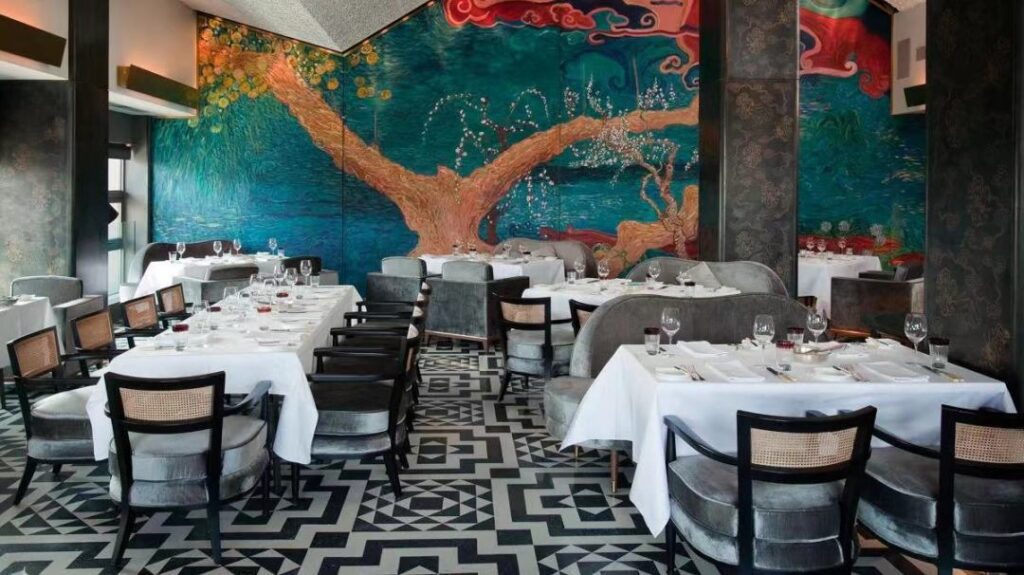


Super Women
of Shanghai Series
Shanghai is a melting pot of east meets west, modern and old. For the international community, it is a home away from home. In the Super Women of Shanghai (‘SWS’) series, we interview female movers and shakers of the international community, who made herstory in the city.
We hope that the series inspires females to define their herstory and move the dial to break to glass ceiling.
 Lauren Hogan
Lauren Hogan

Marion Campan
SWS is a monthly original content brought to you by Lauren Hogan (UP Clinic MarComs Manager) and Marion Campan (Intandid Founder)
If you know a female mover and shaker in Shanghai, get in touch at marketing@ipwsconnect.com.
